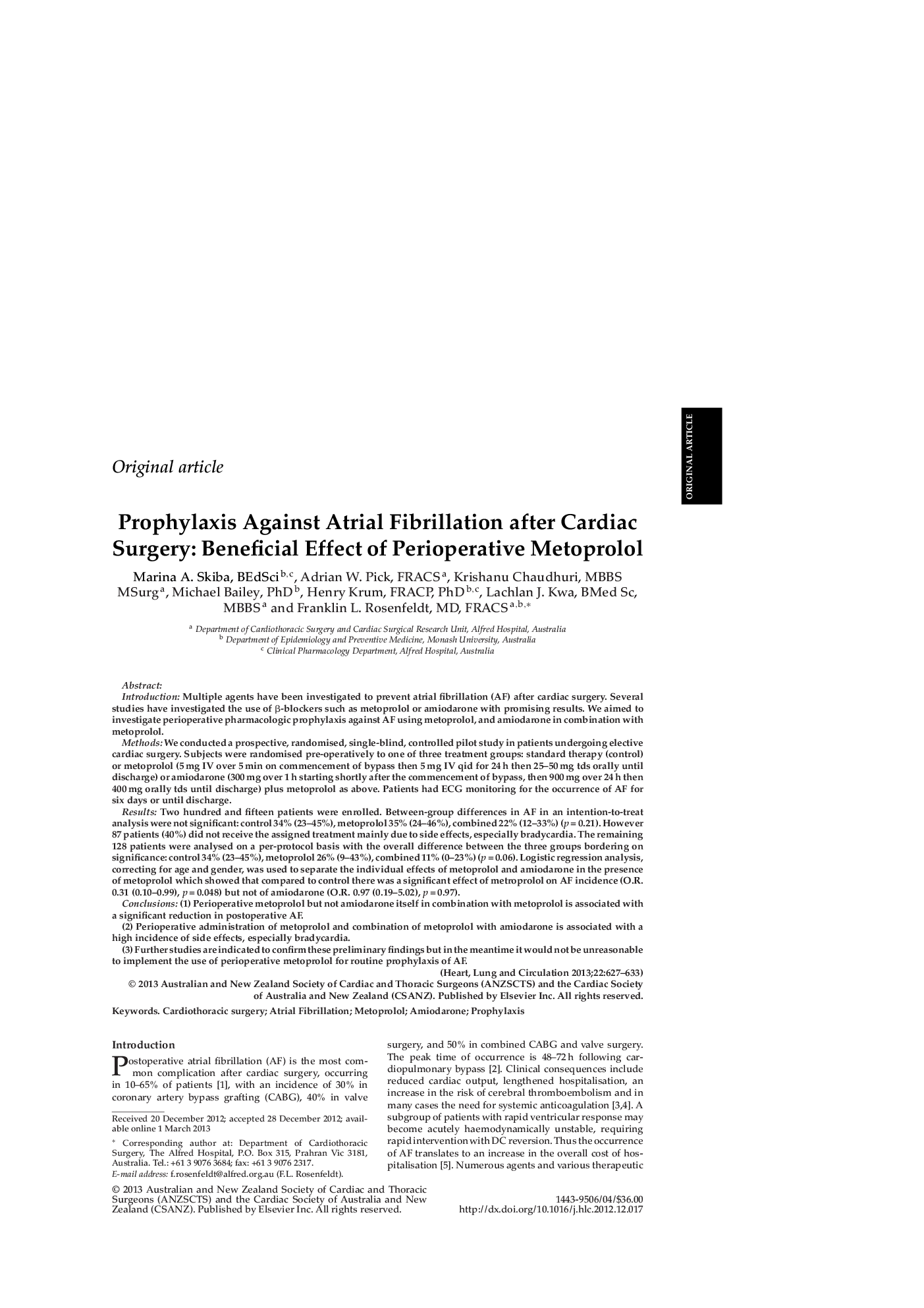| Article ID | Journal | Published Year | Pages | File Type |
|---|---|---|---|---|
| 2918095 | Heart, Lung and Circulation | 2013 | 7 Pages |
IntroductionMultiple agents have been investigated to prevent atrial fibrillation (AF) after cardiac surgery. Several studies have investigated the use of β-blockers such as metoprolol or amiodarone with promising results. We aimed to investigate perioperative pharmacologic prophylaxis against AF using metoprolol, and amiodarone in combination with metoprolol.MethodsWe conducted a prospective, randomised, single-blind, controlled pilot study in patients undergoing elective cardiac surgery. Subjects were randomised pre-operatively to one of three treatment groups: standard therapy (control) or metoprolol (5 mg IV over 5 min on commencement of bypass then 5 mg IV qid for 24 h then 25–50 mg tds orally until discharge) or amiodarone (300 mg over 1 h starting shortly after the commencement of bypass, then 900 mg over 24 h then 400 mg orally tds until discharge) plus metoprolol as above. Patients had ECG monitoring for the occurrence of AF for six days or until discharge.ResultsTwo hundred and fifteen patients were enrolled. Between-group differences in AF in an intention-to-treat analysis were not significant: control 34% (23–45%), metoprolol 35% (24–46%), combined 22% (12–33%) (p = 0.21). However 87 patients (40%) did not receive the assigned treatment mainly due to side effects, especially bradycardia. The remaining 128 patients were analysed on a per-protocol basis with the overall difference between the three groups bordering on significance: control 34% (23–45%), metoprolol 26% (9–43%), combined 11% (0–23%) (p = 0.06). Logistic regression analysis, correcting for age and gender, was used to separate the individual effects of metoprolol and amiodarone in the presence of metoprolol which showed that compared to control there was a significant effect of metroprolol on AF incidence (O.R. 0.31 (0.10–0.99), p = 0.048) but not of amiodarone (O.R. 0.97 (0.19–5.02), p = 0.97).Conclusions(1) Perioperative metoprolol but not amiodarone itself in combination with metoprolol is associated with a significant reduction in postoperative AF.(2) Perioperative administration of metoprolol and combination of metoprolol with amiodarone is associated with a high incidence of side effects, especially bradycardia.(3) Further studies are indicated to confirm these preliminary findings but in the meantime it would not be unreasonable to implement the use of perioperative metoprolol for routine prophylaxis of AF.
